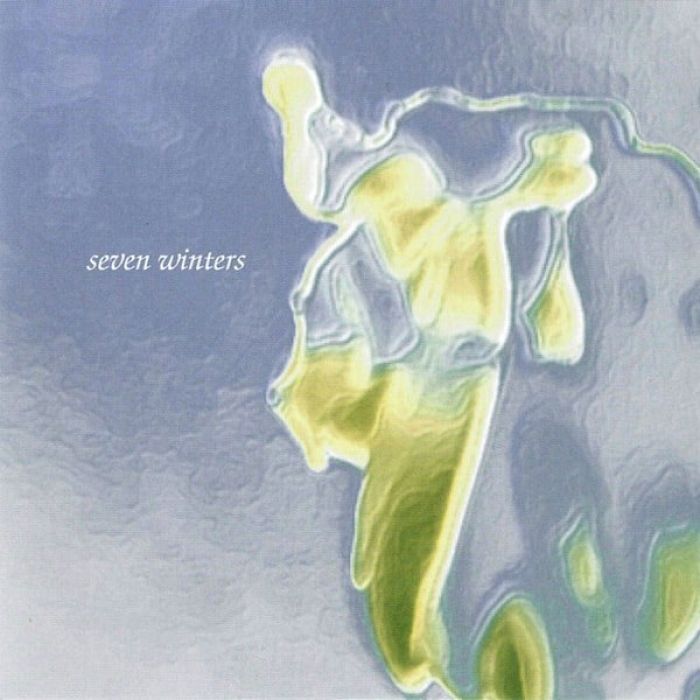Seven Winters by Various Artists (Review)

Somehow, I doubt that when Neil Halstead got his first delay pedal, or when the gals in Lush sang their first vocal harmony, or when the boys in Ride sculpted their first wave of sound, they thought about the long-term impact of their actions. And yet here we are, 15 years or so after the supposed heyday of shoegaze, only to find the genre is as strong as ever. Sure, it may not have NME’s editors falling all over themselves anymore, but shoegaze is still alive and well. And not just here in America or over the pond in the land of its birth, but all over the globe.
Who would’ve thought that shoegaze would put down roots in the Land of the Rising Sun? But as the Seven Winters compilation shows, that’s most definitely the case. Featuring a wide array of guitar abusers from Aomori to Tokyo to Hiroshima — along with a couple of gaijin acts thrown in for good measure — Seven Winters is a rollicking, energetic comp that shows off some of the incredible diversity in the Japanese shoegaze scene (and then some).
Ironically, the Japanese comp kicks off with an artist located squarely in America’s heartland. A side project for lovesliescrushing’s Scott Cortez, Astrobrite is at the opposite end of the spectrum from Cortez’s better-known project. Compared to lovesliescrushing’s gossamery guitars and wispy female vox, “Suckerpunch” does feel like a bit of punch to the stomach. Sure, it has the dreamy vocals, but they’re buried under pummeling drums and syrupy-thick guitar riffs that seem almost grungy — as if all of the “rawk” Cortez has been eschewing for years with lovesliescrushing finally found an outlet.
Moonwalk’s “Out of the Beaten Path” is a bouncy little number that combines Lush-like vocal harmonies with a Sarah Records-esque jangle-pop approach. It’s not dreamy in the usual sense, but there is a certain starry-eyed charm to it. Russia’s Hot Zex turns in “Skylab Sounds,” another track reminiscent of Lush, putting a funky little twist on Miki Berenjyi’s guitar melodies with the gurgle of electronic programming and some Cure-esque synths thrown in for good measure.
Dive’s “Early Sonic June” is one of the comp’s more interesting tracks. Not only is it nearly eleven minutes long, but almost the entire length is consumed with the sort of massive, chugga-chugga guitar riffage one would normally associate with — suprise! — heavy metal. The song is bookended by some sparse and lovely synthwork, only to be completely overthrown by the riffage. And while it seems rather awkward at first — and let’s face it, gets a bit tiresome by the nine minute mark — the more I listen to it, the more I’m fascinated by how much greater the song is than the sum of its parts. Yes, the riffs always seem out of place, but when the band tempers them with breathy male/female vocals, hypnotic synthwork, and some nice melodic shifts, it works in an odd sort of way.
Naturally, this being a Japanese comp, one might be wondering when some anime tie-in will pop up, and so it does on track eight, Airiel’s “Sharron Apple” (a reference to Macross Plus’ virtual singer). Airiel’s offering is one of the most purely shoegazer tracks on the comp, with shimmering cascades of guitar and echoing vocals driven by Jeremy Wrenn’s churning, off-kilter drum programming.
Hartfield’s dreamy pop brings to mind the music of their countrymen over in Color Filter, only more so — or maybe My Favorite if their fascination with alienated youth was exchanged for something a bit less angst-ridden. Yukari Tanaka’s vocals are a definite highlight, expressing a sense of yearning on the song’s affecting chorus. Actually, “affecting” is the probably the best word for the song as a whole. Despite the song’s obviously upbeat qualities, Hartfield’s chiming guitars, elegant piano, and quirky synthwork ultimately reveals the melancholia at their music’s heart, which serves only to make it all the more lovely — right down to the final farewell guitar strum.
Luminous Orange is another track that steps firmly outside the normal boundaries of shoegazer. “Wave” takes on a more exotic, tropical feel. Rie Takeuchi sings about the “happy haze of a cloud” over island rhythms, languid electric guitars, and the oceanic swells of various keyed instruments — sort of like Stereolab had they spent more time sipping piña coladas on the beach than studying krautrock and Esquivel.
Coaltar of the Deepers is currently recognized as one of the shining lights in Japan’s shoegazer scene, and “Haru No Gyouninzaka” proves that they’re serious about living up to that praise. The track is an absolute monster, with Narasaki’s vocals practically lost and obscured by swirling layers of guitar — many of which feel as if they’re completely unrelated to the track at hand but just drifted on over from some other place. And yet the song keeps them all in check with a steady beat, resulting in a dynamic energy that feels odd considering the relatively languid nature of the band’s sonics.
Looking at the comp as a whole, I think I’m most surprised at the rather aggressive nature of nearly all of the tracks. Of course, “aggressive” is a relative term here, but even so, from Astrobrite’s pummelling sound to Dive’s metal riffage to the hyperactive power-pop from Gymkhana and Moonwalk, it’s a curious thing. Even the more atmospheric tracks have a driving, almost punk-like beat propelling them.
It’s not a bad thing mind you, but perhaps an indication that the genre has, in some ways, been reinterpreted by our friends in East. It wouldn’t be the first time the Japanese have taken a decidedly Western form of pop music and completely recontextualized it (Pizzicato Five, anyone?). Sometimes it doesn’t work, but when it does, as it does in the case of Dive and especially Hartfield, the results are both reassuringly familiar and beautifully fresh and unrecognizable.